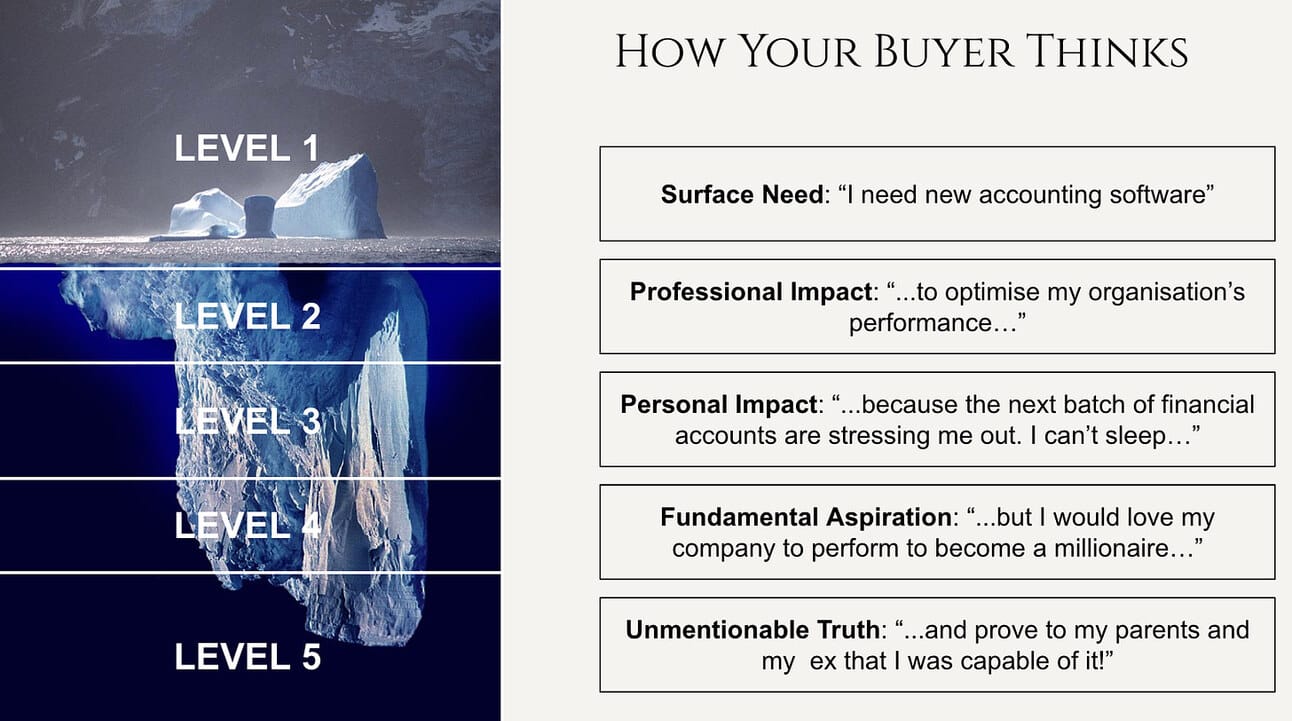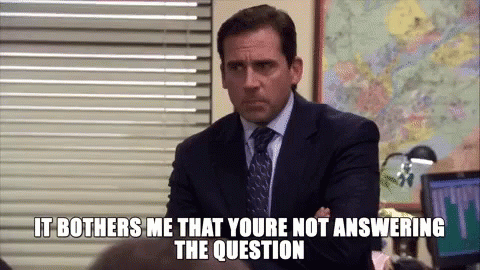- Conquer Sales Newsletter
- Posts
- #4 The Perfect Discovery Call
#4 The Perfect Discovery Call
Or how to truly understand your prospect's challenges
Hey there,
Wherever you are and whatever the time it is, thanks for tuning in. Glad to have you here.
Today I want to dive into discovery calls. Plural. Not because you do many of them but because each call you have with a prospect should have an element of discovery to it.
You probably have this sense that the world is moving fast, things change, it’s the same for your prospect, so find out, with each call, how things have changed for them.
What we’ll be covering this week:
Qualification vs Discovery
Do your research
Set an agenda
Know your stuff
One layer at a time
Perfecting
Qualification vs Discovery
Let’s first get something out of the way. What’s the difference between qualifying your prospect and doing a discovery call?
Qualification
It’s about us.
You’re asking questions to make sure that the prospect is ticking all the boxes to qualify as a customer. They fit.
Important but I like to go relatively fast on these and get them out the way.
Discovery
It’s about them.
This is where you’re being curious.
The impact to their business. And this is where you really need to focus… and where we’re going to focus this edition.
Do your Research
Some have been doing discovery for a few years.
How many times have you been caught “winging it” with the client asking you: “could you tell us what you already know about us?”
Yeah, don’t wing it. Know who you’re talking to.
More than that, skip the weather talk and start telling them what you know about them and if they could fill in some gaps.
Show that you care.
Set an agenda
How you set the tone and manage your prospects expectations at the start of the call heavily impacts the quality of the call itself.

Asking permission to question your prospect is always good practice.
Here is how I frame it:
1️⃣ (Opening) Morning/Afternoon [name], great that you could join me today. I have us down until [insert time], does that still work for you?
2️⃣ (The agenda) Perfect. The agenda I set for this call is to first ask a couple of questions about your business and challenges so I can best understand how I can help.
Product based:
From there, I’ll show a tailored demo of our platform and discuss pricing.
or
Service based:
From there, I’d like us to delve deeper into those issues and explore potential solutions and pricing.
3️⃣ (Outcome) If we agree it makes sense, we can wrap up with scheduling next steps.
4️⃣ (Asking for feedback) Does that sound like a good plan or is there something you’d like to add?
Know your Stuff
It’s all about building trust with your prospect.
An easy way to achieve that result is by positioning yourself as a knowledgeable professional.
Through talking to your ICPs (Ideal Client Profiles) you’ll gain that knowledge, you’ll understand their challenges and how to portray your product/service as the solution.
Understand their world
"Typically when [insert role]'s take a call with me they're looking for help with [insert common pain points]. Is that the case for you or is something else more top of mind?"
With this question, you’re being assumptive, direct and demonstrate you understand their world. You’ve done your homework.
Why it Works
This question is much more effective than typical questions like "what motivated you to take this call?" because:
It demonstrates expertise.
It keeps the conversation focused on the prospects issues/goals.
It builds a sens of safety by referencing other customers’ experience.
Point 2 can’t be stressed enough.
If you ask open ended questions you'll get open ended and often much longer answers.
Be strategic with this approach.
Otherwise, you'll constantly be running out of time and missing other key parts of the call: pricing, setting next steps, multi threading etc.
One Layer at a Time
Prospects, rarely (if ever) share exactly what they’re struggling with.
Often they’ll go high level or be somewhat vague with their answers instead.
So let’s take a step back to understand the levels of questionning before I show you a great framework.
How deep will you go
I use the below slide in one of my client presentations to explain the different levels of questioning.

Most reps, especially in the past years, could survive on level 2 depth. With the economic slowdown, I suggest you up your game and find ways to go deeper.
Experienced sales reps will look to use various forms of open ended questions to get to Level 3.
The ultimate goal is to get to Level 4. The prospect already trusts you by this point. Rarely on the first call. You get the prospect to open up like this, you’ll be able to fully address their issues and know if that deal is a done deal, or if they’re just entertaining you.
Level 5… extremely difficult to get to it but who knows, maybe you’ll get to that point with some of your truly open clients?
So now that we’ve established the various levels, let’s explore the framework.
Summarise
Before any follow up questions summarise what you've heard.
This does two things:
Let's them know you were listening.
Builds trust and a better environment for asking additional questions.
To be clear, you don't have to summarise every single time they speak but if they cover a lot of ground it's good practice.
Bucket Questions
Let’s explore what I consider to be one of the most effective type of question. From experience, they give the prospect options to choose from.
This optionality helps build trust and give a sense of safety.
➡ Prospect only shares about their process (not the challenges or impact).

🪣 Reminds me of [insert customer]. When they told me [what the prospect just told you] it was because they we're struggling with [insert two options]. Is that what you mean or did I miss the mark?
Soft Questions
Another great way to get someone to speak more about something is to start questions with:
Can you talk to me about
Can you help me better understand
➡ Prospect only shares about their process (not the challenges or impact).
☁️ Can you help me understand the impact that's having on your business? I’m asking because that'll help me know which parts of our platform are most relevant.I try to give context to why I’m asking. This is optional but it works.
Get to the Why
When we do our discovery call, we need to go deeper, level 1, 2, 3, 4… one way to do that would be with “why” questions. But this can quickly get weird.
A way around this is to ask questions starting with “what” or “how” or “who”.
A few examples:
What else comes to your mind when you see this, in how you'd leverage it?
How does this compare to what you are doing today?
What would this allow your team to do differently?
Let's pause here - what has stood out the most so far?
Who else does this challenge impact? (great for planting the seed to get wider or to power later)
...now you can stop asking "does this resonate?"
Some of those questions could be followed by a “why”, just don’t abuse it as it can quickly feel like an interrogation.

Perfecting
Practice makes perfect and there’s no better way than by recording yourself, analising your call and getting some feedback on where you could have done better.
Now that we’re mostly doing Zoom calls it’s easy to record for future review.
You can even go beyond with tools that can transcribe, analise and some even give you realtime coaching during the call (might be overkill and distracting).
Here are a few tools you can explore:
Fathom: if you use Zoom, it records video/audio, transcribes and summarises. Sync’s with your CRM for a call summary. I personally use it.
Sybill: if I had a team I would look to use some collaborative tools that add a layer of AI analysis. It detect your prospects body language to see how engaged they were and even scores the call to help understand deal health.
You could also go full conversational intelligence with Gong or Salesloft.
Summary
I could rehash in bullet points what I wrote above but I’ll simply say this. The key to a good discovery call is:
It’s about them
Be curious
Reply